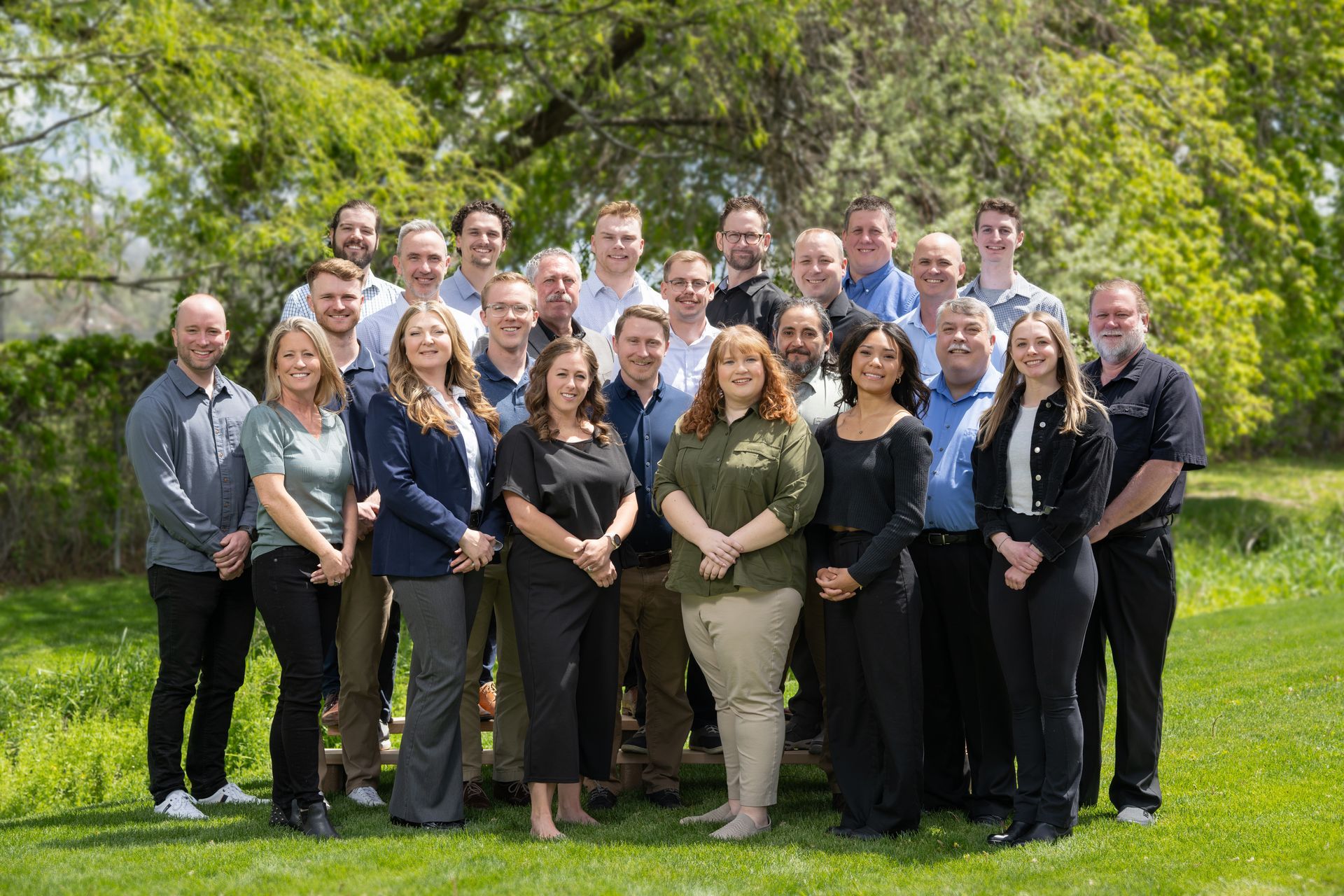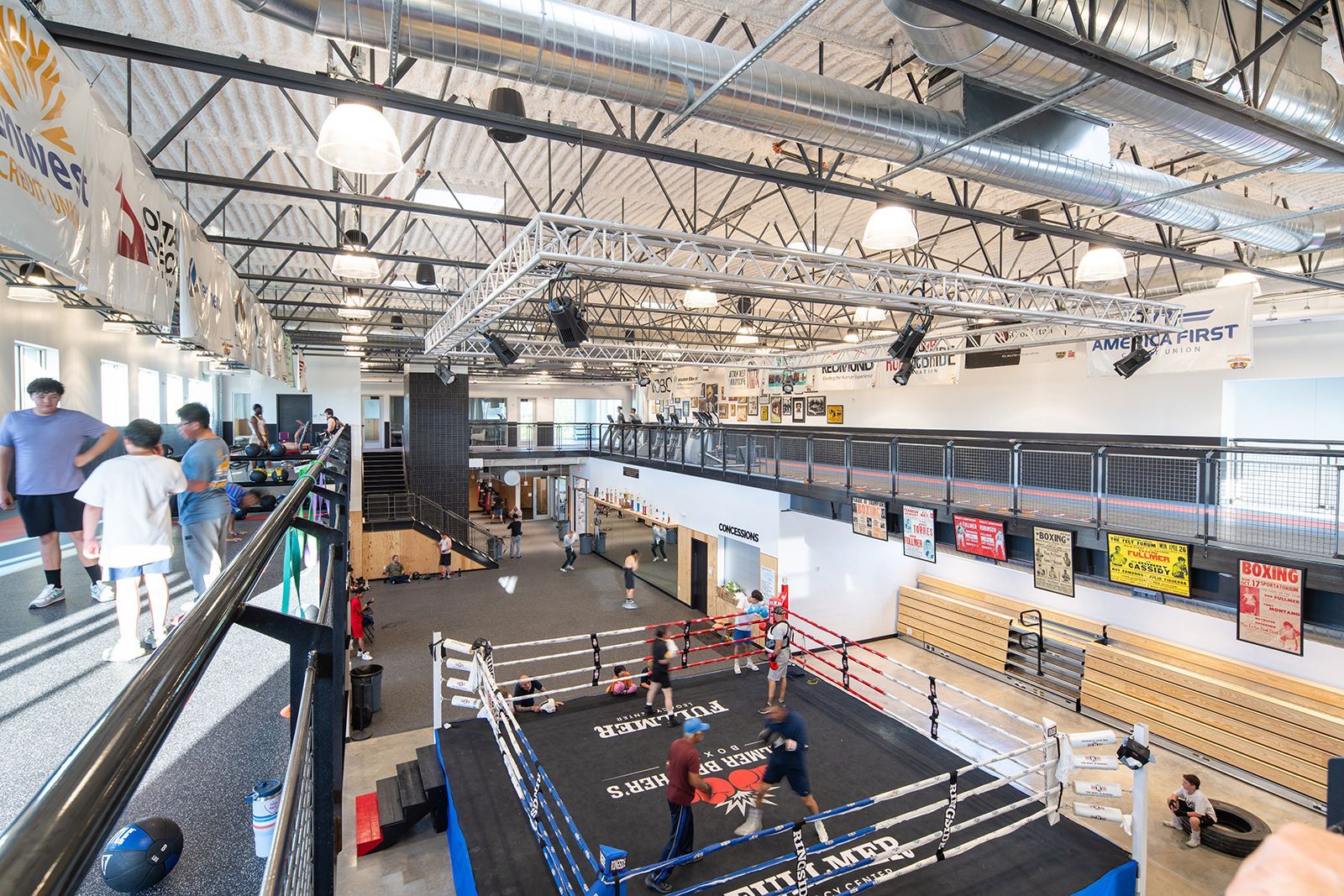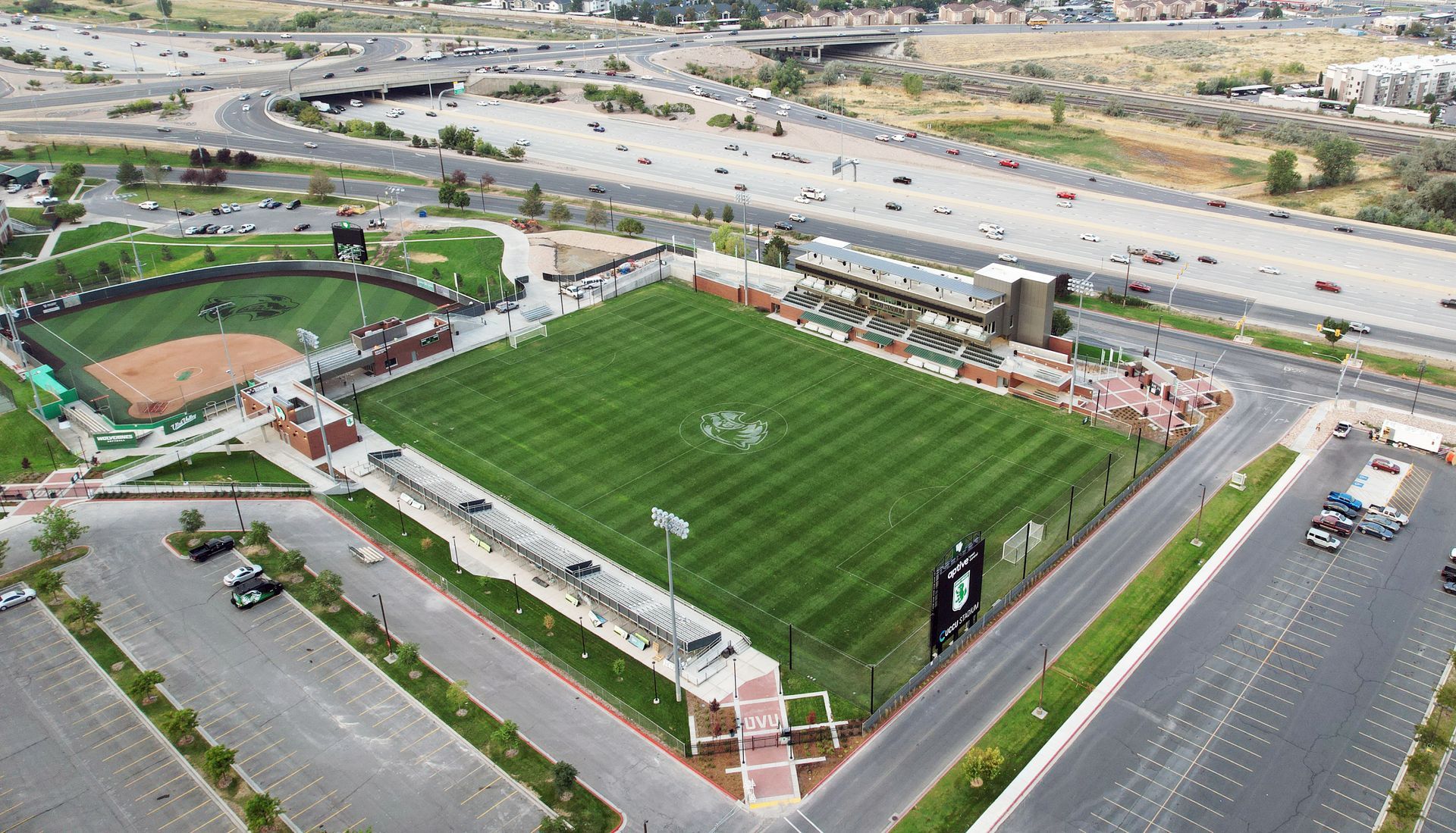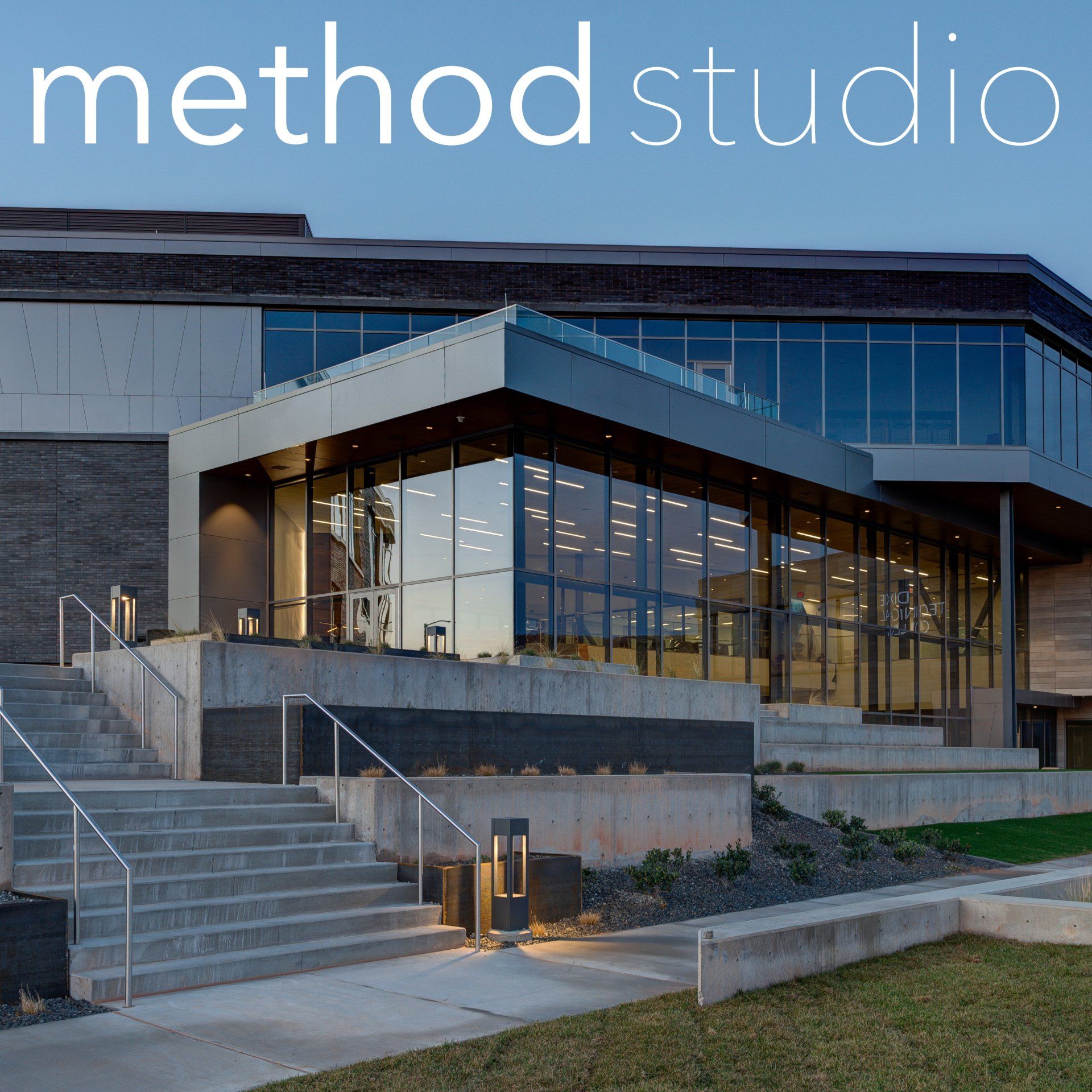Ex-college athletes working in Utah’s A/E/C industry reflect on how competitive sports have aided their professional careers. By Brad Fullmer
Author’s Note: This year’s edition of UC&D’s ‘Ex-College Athletes in the A/E/C Industry’ features five individuals from four different sports—football (2), basketball, soccer, and swimming—who each immensely enjoyed their collegiate athletic careers. They have taken the lessons, experiences, and values they learned from the playing field, court and pool, respectively, and applied them to their professional careers. And they are quick to draw parallels from athletics to the real world, especially in an industry as competitive as construction and design.
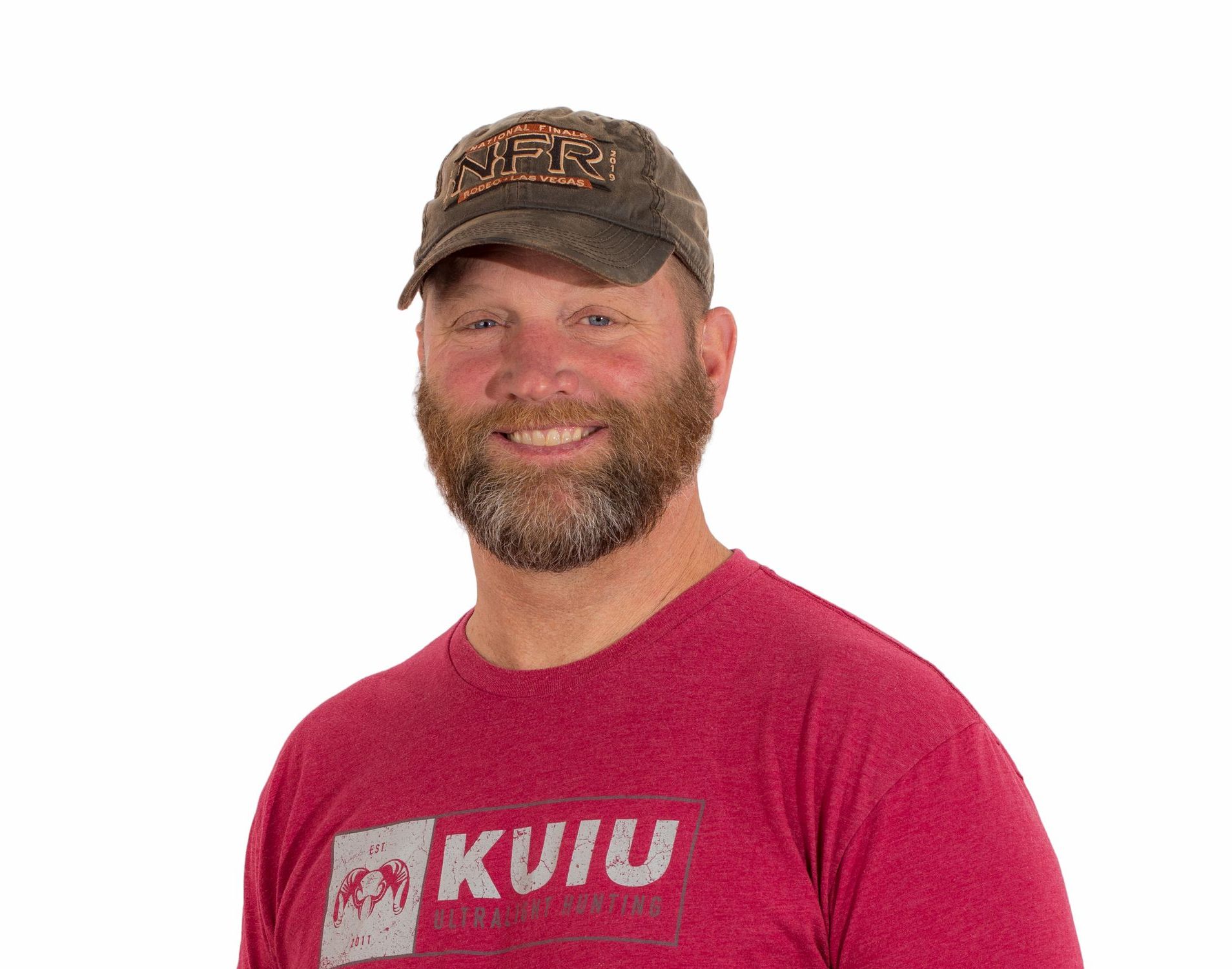
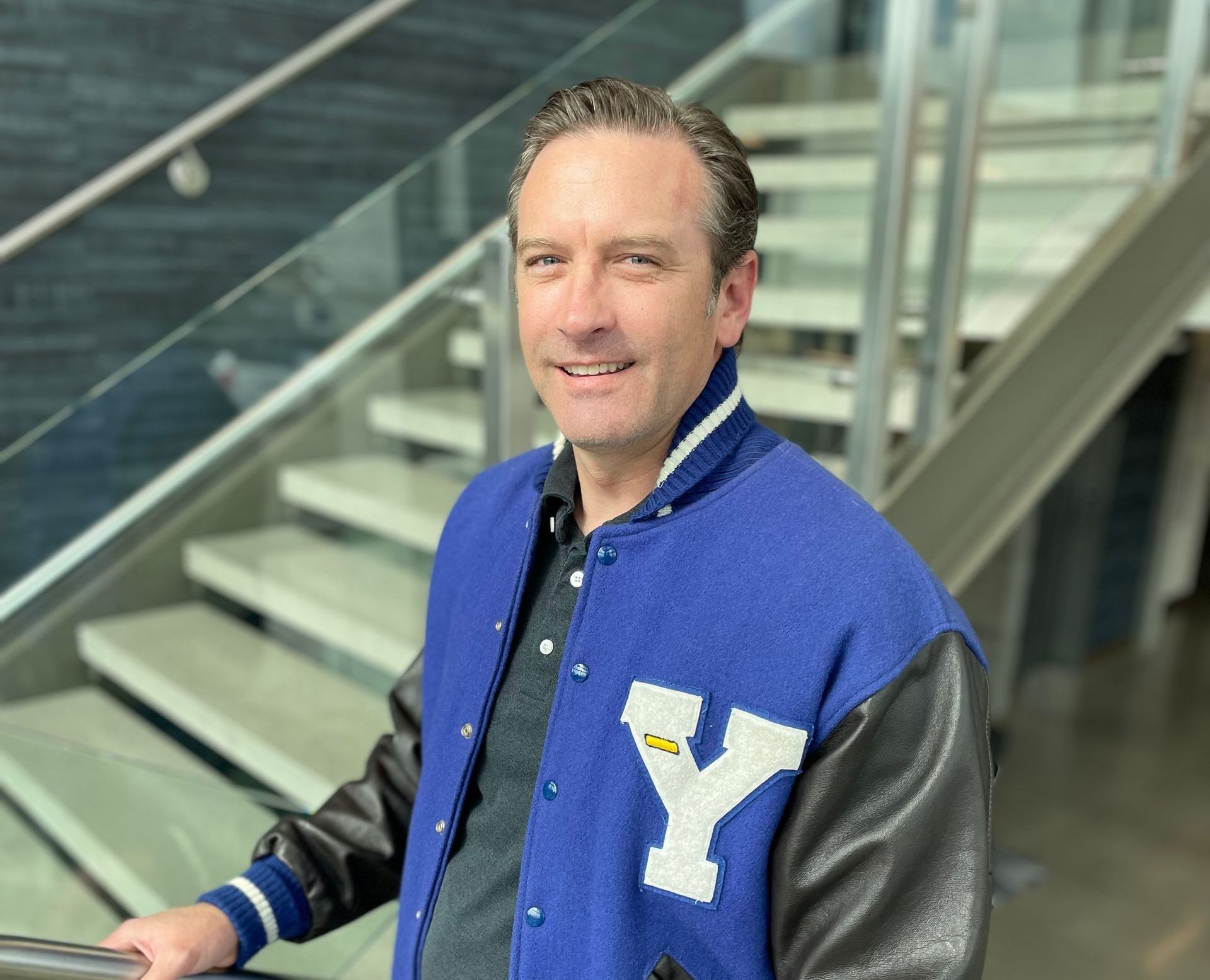
Name: Robby Loose
Title: Director of HR & Safety
Company: Stout Building Contractors
College: Brigham Young University
Sport: Swimming
Years: 1992; 1995-98
Robby Loose was born into a sports family, and quickly realized while growing up in Washington State the value of competition.
The youngest of four children, his father, Robert (Bob), was a college and high school football and track coach for more than 50 years. Bob was also a passionate sports fan, particularly of his alma mater, Brigham Young University, where he played football in the 1950’s.
Loose, who turns 49 in August, followed in his father’s footsteps by competing for BYU—albeit in swimming—earning four letters in 1992 and from 1995-98 (he served a two-year mission for the Church of Jesus Christ of Latter-day Saints to Guam/Micronesia from 1993-95).
“Dad was a football coach, and he was okay with me playing football, but he said ‘Let’s get you into a sport where you’re not going to have to your hips replaced or your knees replaced. You want to able to move when you’re older,’” said Loose.
Two of Loose’s siblings also gravitated to coaching professions. Dee Loose has been a swim coach for 30+ years, including a decade at BYU as an assistant coach and he currently runs Hilltop Aquatics in American Fork. Colleen Long has taught gymnastics for 30-plus years and now owns and operates Alpha Gymnastics club in Woodinville, Washington.
Loose’s most notable achievement in swimming, he said, was being named an All-American as a senior at Woodrow Wilson High in Tacoma in 1991-92, where he swam the 200-yard freestyle and 100-yard butterfly. He was recruited by BYU, the University of Utah, the University of Iowa, and the University of Arizona, but said he “desperately wanted to go to the University of Washington. But my swim coach told them I was Mormon and going to go on a mission and to not look at me. I found that out after my mission.”
He nonetheless takes pride in his career at the Y, and it made his father extremely proud to have a son attend his alma mater. “He was stoked—he loves BYU,” said Loose.
Loose said he had a good collegiate career, earning a few conference titles in relay races and clocking a personal best time in the 200-yard free of 1:38.2. “At the time I was a solid college swimmer, but not elite,” he said. “The NCAAs back then were won with a 1:31; now they win with 1:29—they’ve broken the 1:30 barrier. Kids today are off the charts—they’re otherworldly!
Loose is relatively new to Utah and the construction industry, having been hired in October 2021 to serve as Director of Human Resources and Safety for Bountiful-based general contractor Stout Building Contractors. He had spent the previous 16 years at MAU Workforce Solutions as Director of Risk Management and Safety, living in North Augusta, South Carolina, just across the Savannah River from The Masters and and the famous course at Augusta National.
Loose has relished his brief time working at Stout and said the principles he learned as a collegiate athlete have aided him during his professional career.
“You are programmed for goal setting and achievement [in sports], and I would like to think I’ve brought that to Stout in the form of performance development and our application of it here among our 120 employees,” he said. “It’s fun to work in construction at this period when the pipeline for business is wide open. You’re really pushed hard to make the environment hospitable for existing employees and attractive for potential employees. And it’s so competitive.”
“Robby is driven by passion,” said James Stout, Founder of the 16-year-old general contractor. “His contribution to Stout is recognized, celebrated, and is backed with his intentional and meaningful communication, insightful initiatives, and desire to see others excel and succeed. There is no doubt that Robby approached construction with the same passion which pushed him to be an elite athlete.”
Loose added, “If you’re an athlete, you’ve got be competitive, otherwise you get washed up. And [construction] is competition. Construction in Utah, from what I’ve observed, is a competitive, fraternal order. There is this notion that if we all work hard, (a competitor’s) success equals my success, and I really think that’s what is happening here in this pocket of America, where construction is just going crazy. It’s a different professional culture.”
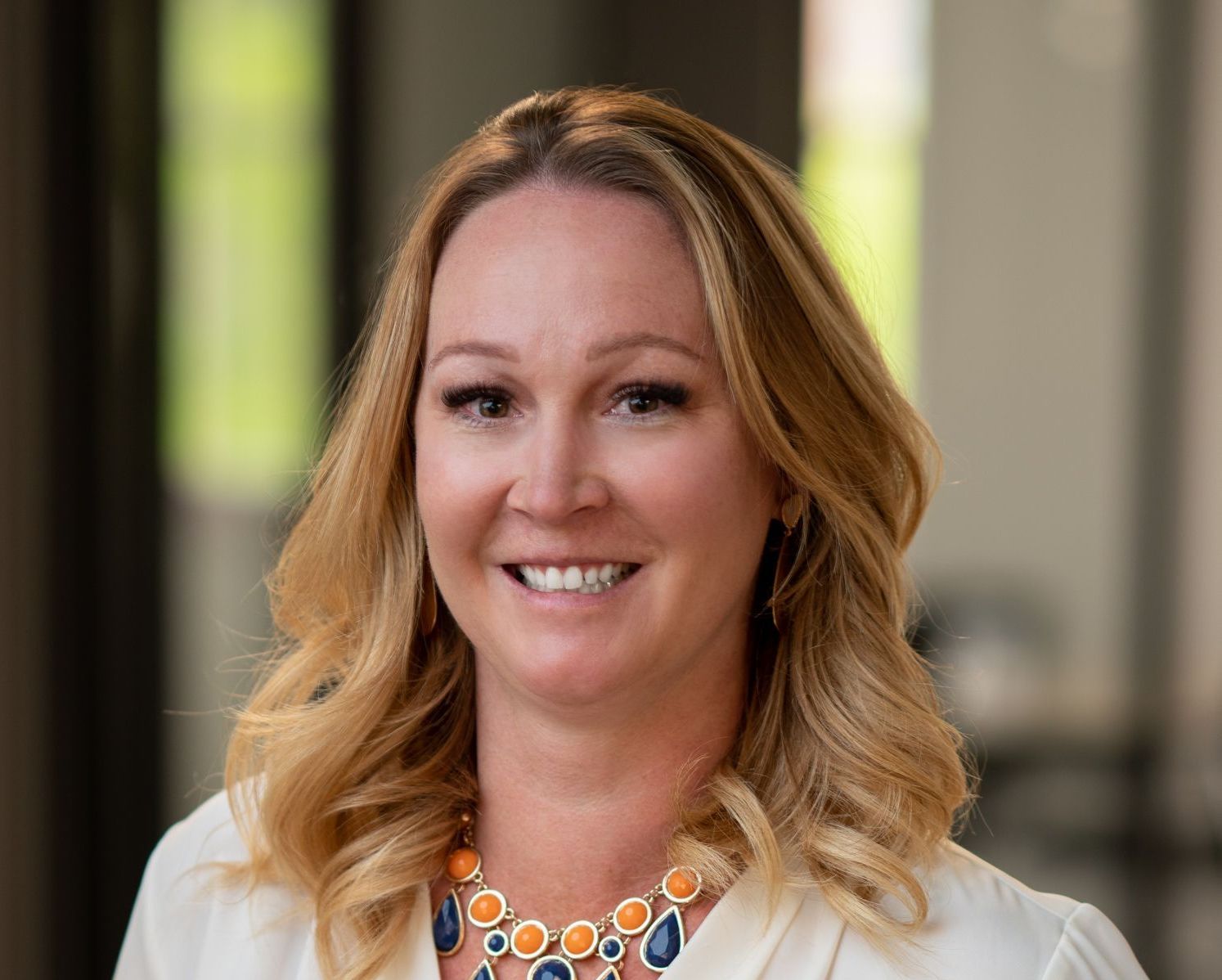
Name: Brittney Boyle
Title: Director of Marketing
Company: Pentalon Construction
College: Queens University of Charlotte
Sport: Soccer
Years: 2001-03
As the Director of Marketing for Salt Lake-based general contractor Pentalon Construction, Brittney Eakins Boyle is relishing the opportunity to utilize her competitive chops in the pursuit of new construction projects.
“I absolutely think it’s the best industry for me to be in because it mixes my creative side and my competitive side,” said Boyle, who marked her one-year anniversary at Pentalon at the end of June.
“To go after a job, or a bid, or RFP, I take those so personal. I have very little control once it gets out of my office—I don’t control the estimating or the numbers, but I keep track of every win-loss, interview, second-round bid. I’m super competitive.”
She grew up in a competitive sports family. Her father, Rich Eakins, was the all-time scorer in basketball at Juneau-Douglas High in Juneau, Alaska (his record was later broken by former NBA/Utah Jazz star Carlos Boozer) and was recruited to play at the University of Washington. Her great-uncle, Jim Eakins, was a standout 6-foot-11 center at Brigham Young University and played 10 professional seasons—eight years in the ABA (which included 100 games over two seasons for the Utah Stars) and two in the NBA.
Boyle, 39, was born in Utah (her parents met at Dixie College) and grew up in Mesa, Arizona. She started playing competitive soccer at age 11, including with several club teams. Her family moved to Lexington, Kentucky her junior year in high school where she competed for Tates Creek High as a striker and forward.
She was recruited to play at Queens University of Charlotte (then Queens College) in Charlotte, North Carolina by coach Jonathon Brabson, one of 12 incoming freshman women that year, and played two full seasons from fall 2001 to spring 2003, before a spate of injuries caused her to cut her collegiate career short.
“My body gave out—back, knees, nose, ankles—lots of injuries, lots of surgeries,” she recalled. “I didn’t start as a freshman, but I was usually the first sub in, and started a couple games as a sophomore,” she said. “We did pretty good, we held our own.” She enjoyed the experience and ultimately graduated in 2005 with a Bachelor of Business Administration with a concentration on marketing and pre-law. She stays in contact with several former teammates via a Facebook alumni page.
She is also a passionate sports fan, describing herself as a “Cheesehead and a Dookie”, in reference to her love for the Green Bay Packers and Duke University.
She started working in Utah’s construction industry in 2016 and spent five years at two different general contractors, before landing her current role at Pentalon. She has enjoyed working for the firm and has gained a better understanding of the industry—particularly the multi-family market—under the tutelage of firm President Carl Tippets.
“That was one of the things that was enticing to come here, to being able to work under him and see how he handles his business relationships and his company,” she said of Tippets. “I’ve always liked to sit back and watch people—I got that from my grandpa when I was a kid sitting in his business meetings. So, listening to how he talks, how he phrases answers, and how he addresses questions is valuable to me. I’m able to now go into these meetings and be confident.”
She continued, “He’s also this gentle giant in a sense—Carl’s a tall guy. It’s interesting to watch him put teams together. He’ll admit that he doesn’t know everything. We have great people in (COO) Shay Johansen and (VP of Construction) Brian Stewart.”
“I like to hire employees who have participated in athletics at the collegiate level—I firmly believe they come to the workforce with some skill sets that are advantageous for them and the company that is fortunate enough to hire them,” said Tippets. “First, they are obviously competitive by nature. That competitiveness is a directly transferable skill to the business world. Secondly, and even more importantly, they have learned the concept of team. They have learned that you win and lose as a team. Brittney comes to us with both of those skillsets. She is a winner who has learned the necessity of working as a team to come out on top.”
Boyle has immersed herself in learning as much as she can about construction marketing and is quickly finding her stride. She served on the 2021-22 board of the Utah chapter of the Society of Marketing Professional Services (SMPS Utah) as Programs Chair and will maintain that role for the 2022-23 year. She was also named as a 2022 Elevate HER Cohort by the Zweig Group, a special task force comprised of individuals with a commitment to promote diversity to combat recruiting and retention challenges in the A/E/C industry.
She has enjoyed marketing to the multi-family sector, saying “I prefer to do business in the private sector. My personality is very much a handshake and relationship building. I like you, you like us, let’s do a project together. I view my competitive nature as an asset because it keeps me going. I want to see who’s doing what, what is next, [and] what I can do better on the next one.”
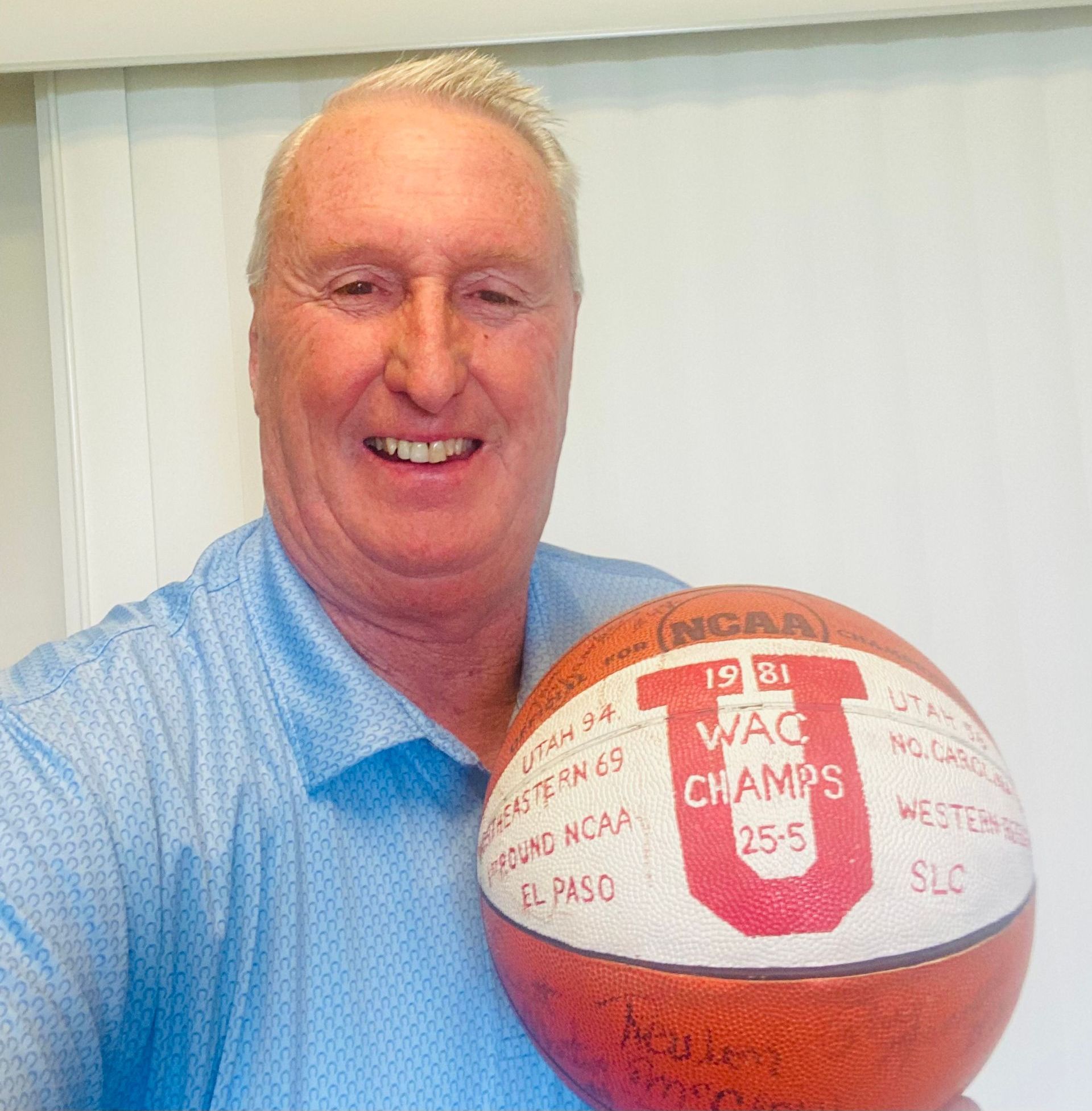
Name: Craig Hammer
Title: Executive Director of Secondary Schools
Company: Washington County School District
College: Dixie College; University of Utah
Sport: Basketball
Years: 1978-80; 1980-82
Craig Hammer credits his high school basketball coach Dee Jensen for instilling within him a vision of what his life could be.
“I’m who I am today because of him,” said Hammer, Executive Director of Secondary Schools for Washington County School District in St. George and a 39-year veteran of Utah’s education system. “He saw something in me I never saw in myself. He convinced me I could be more than I could be. I didn’t make a big decision in my life without talking to him.”
Hammer grew up in humble circumstances, his parents were hard-working, blue-collar folks; his father, Norman, worked at Wonder Bread in Salt Lake for 38 years. Hammer loved sports growing up and was standout four-sport athlete at Murray High (2x Deseret News basketball first-team) who also starred at Dixie College (NJCAA All-American his sophomore year), before finishing his hoops career at the University of Utah.
During his junior year (1980-81), Hammer played on a 25-5 Utes team that won the Western Athletic Conference (13-3 record) and were a No. 3 seed in the 32-team NCAA Tournament.
It was a team stacked with talent, including future NBA players Tom Chambers (4x All-Star) and Danny Vranes, along with Karl Bankowski and Pace Mannion. The Utes crushed Northeastern in their first game, 94-69, then faced blue blood North Carolina in the Western Regionals, held on Utah’s homecourt at the Huntsman Center.
North Carolina was led by future NBA stars James Worthy and Sam Perkins, and packed the paint against the Utes, who shot poorly from outside and succumbed 61-56, a game that still gnaws at Hammer.
“I remember walking out of that locker room like it was yesterday—it took me forever to get over that game,” he said. “What hurt even worse, (North Carolina) didn’t get touched until they lost to Indiana in the finals. That should have been us.”
He said his main reason to play at Utah was so that his parents could see him play. “Looking back on it, I made the best decision […] they got to see every game—row 8, across from our bench,” said Hammer. “My last [home] game at the U they gave the seniors the mic; I was the only senior. That’s the first time I saw my dad cry.”
Hammer earned a Bachelor of Political Science from the U in 1983 and was strongly considering going to law school. Out of the blue, his high school principal at Murray called to see if he’d be interested in coaching at his alma mater on a part-time basis.
“I had the greatest experience,” he said. That led to a student teaching job, and ultimately, a full-time position, where he spent six years. “I never thought in a million years I’d be a schoolteacher, ever. I got in for all the wrong reasons, but I’ve loved every minute of it.”
Besides teaching, Hammer coached football, baseball, and golf, including five years as Murray’s head basketball coach.
He earned a Master of Education Curriculum and Instruction in 1989 from the U, and in the spring of 1990 moved with his family to St. George to teach at Dixie High and serve as head basketball coach. St. George is also his wife’s hometown—they met and married while at Dixie College.
Hammer spent two years as a teacher and two as assistant principal, before serving as principal for 13 years. He joined WCSD’s District office in 2007 at Executive Director of Secondary Schools, a role he’s held for 15-plus years. He has thoroughly enjoyed each of the different roles he’s held in his education career.
“One of the greatest things about being principal at Dixie High, it was a smaller school with 1,200 students, and I knew every kid and they knew me,” said Hammer. “It was hard to walk away from coaching—I miss that relationship with the kids.”
He recalled a former student that died a few years ago in a car accident, and recently looking at the obituary he had saved and tearing up. “It’s like your own kid,” he said, wistfully.
His current job has morphed into one where he is tasked with everything related to school facilities, including land purchasing, overseeing the selection of the design and construction teams, best practices, and everything in between. He said it’s been an incredible experience, one that keeps him hopping, particularly with the challenges of today’s construction climate.
“When the district created this position—I’m the only one to have it—they put me in charge of facilities,” he said. “When I got this job, I didn’t know a yard of cement from a yard on the football field. But I brought the perspective of being a high school principal.”
Hammer said he’s overseen the new construction or major remodel of 30 buildings, including six large high school projects, during those 15 years.
“One of the interesting things that has happened is we used to go vertical with schools, then went to one level […] now we’re back to going vertical because of the cost of land,” he said. “Buildings are built so much better now. Of the projects we’ve built, 90% are tilt-up concrete and we’re going to get 75-plus years out of buildings. And they look like they’re still brand new. We save 20% (construction costs) going with tilt-up, and it works great for our climate. I wouldn’t try to sell that [concept] to every [school district], but it’s worked for us.”
Hammer has also served with the Utah High School Activities Association since 2009 and is currently the Constitution and By-Laws Committee Chair. In 2013, he was presented with a NFHS Citation, one of the most prestigious awards given by the National Federation of State High School Associations, recognizing individuals whose long-time contributions have had a prominent impact on high school activity programs.
The 62-year-old Hammer is nearing the finish line of his career (he’s set a June 2023 retirement date) one he believes has been infinitely better because of what he learned competing in sports. He believes students who participate in school sports are better prepared for life post-graduation.
“I know what athletics did for me and I know there are plenty of kids like I was before I started playing,” he said. “It opens doors and creates opportunities. Anything related to sports or other extra-curricular activities helps students. They get better grades and have better attendance.”
A year from now, “I’m hanging up my cleats and golfing full-time,” he said. “It’s been a great career. We’ve got a great (district) team, from the architect to the facilities person. It’s consumed most of my career at this level and pulled me away from the academic side. But it’s been phenomenal.”
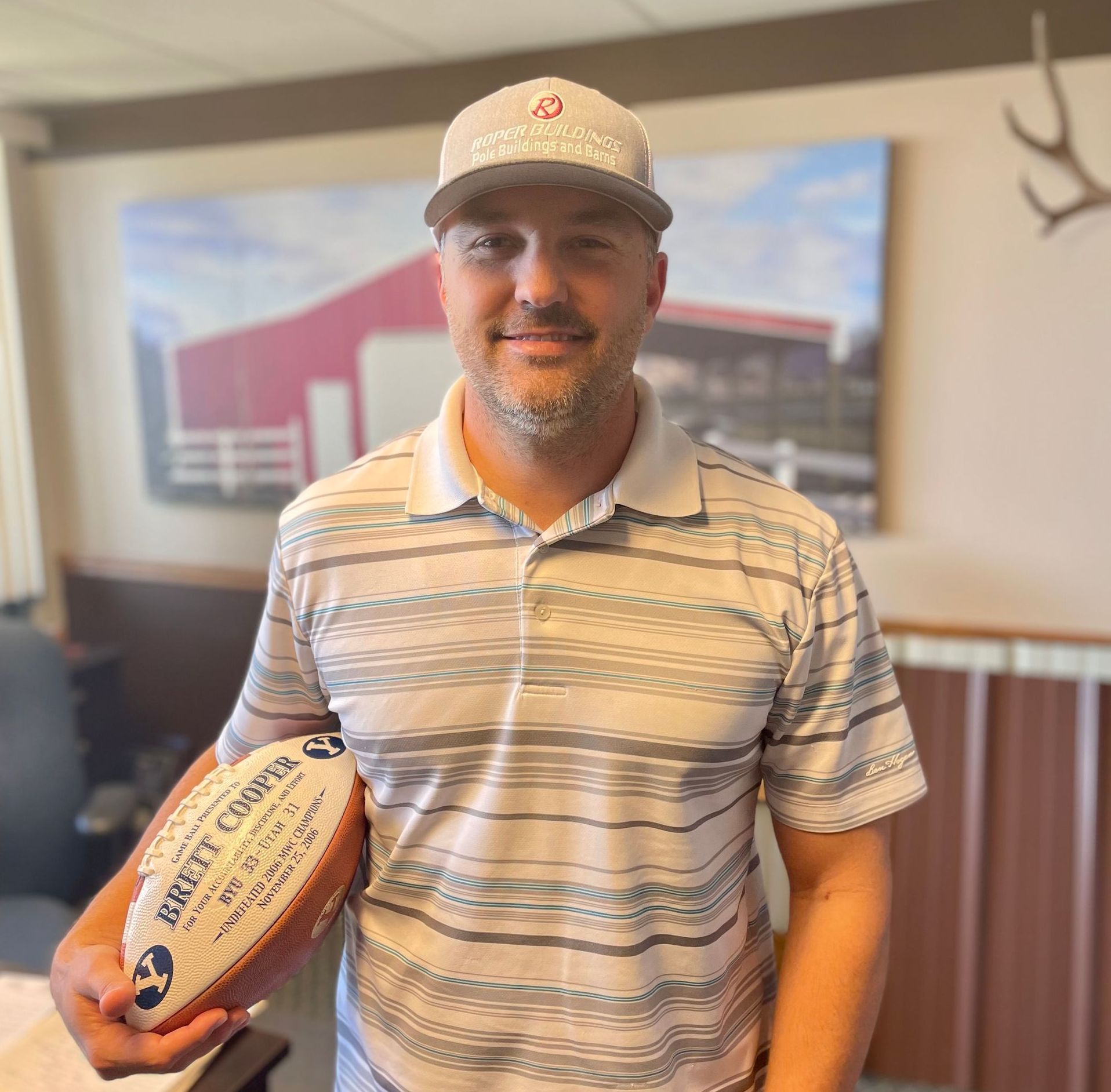
Name: Brett Cooper
Title: VP of Marketing & Sales
Company: Roper Buildings
College: Brigham Young University
Sport: Football
Years: 2003-06
Pull quote:
“Sports taught me how to take criticism and coaching, as well. You learn to be coachable. You have to play as a team, but really, how well do you do when performance is required, and somebody is telling you that you need to do better?”
It was literally more than five years from the time Brett Cooper played his final high school football game at Bonneville High to the time he laced up his cleats to compete on the gridiron for Brigham Young University, and remarkably, the speedy wide receiver didn’t lose much in terms of raw speed.
“It was bizzarro. I was a freshman and hadn’t stepped on a football field for five years. I was able to maintain my speed and ran sub 4.4 40s,” he said. “I was one of the top three fastest guys every year.”
A native of South Ogden, Cooper was one of five boys in a competitive family playing football, baseball, and running track. His father, Sam, he said, was “a legit five-star athlete” in Southern California (West Covina) and was initially recruited to play running back at the University of Southern California (USC), but blew out his knee his freshman year and ended up transferring to Utah State, where he played receiver and running back over two seasons (1968-69). Brett Cooper’s brother, Jason, also played receiver at BYU (1994-95).
At 5-foot-11 and 180 lbs., Cooper was a slot receiver, safety, and kick returner at Bonneville High, earning 4A All-State honors his senior year (’99 graduate), He was also a burner on the track, claiming back-to-back 4A titles in the 100-meter dash, including a blistering time of 10.6 seconds his senior year.
He was recruited by a half dozen schools to play football and run track—including BYU and the University of Utah—and chose the Y, but elected not to enroll right away and instead served a mission for the Church of Jesus Christ of Latter-day Saints to the Chile Osorno Mission in southern Chile from 1999-2001.
He redshirted his first year back and then played from 2003-06 for two coaches—two years under Gary Crowton and two years under Bronco Mendenhall. His most successful season individually was his freshman year, as he led the Cougars in kickoff returns (18 returns for 435 yards). From a team perspective, his senior year was most rewarding, as BYU claimed the 2006 Mountain West Championship with a perfect 8-0 mark (11-2 overall, good for No. 16 in the final AP rankings).
The final regular season game of 2006 is well-remembered in BYU-Utah ‘Holy War’ lore, as the Cougars went into Rice-Eccles Stadium and stunned the Utes 33-31 on a last-second 11-yard touchdown pass. The play is simply known as ‘Beck to Harline’ or ‘The Answered Prayer’ as scrambling QB John Beck slung the ball to tight end Johnny Harline, who caught the ball near the middle of the end zone, while on his knees, as time expired.
“It was crazy,” Cooper recalled of that play. “It’s kind of a funny story. I got subbed out on that last play […} [After] I threw up my helmet and it hit the middle of the field and rolled in front of (Utah Coach) Kyle Whittingham and the whole University of Utah team, so I had to run out onto the field and grab my helmet […] and the entire (Utah) team and coaching staff were wanting to break my neck. I threw it so high it bent my face mask.”
After graduating with a Bachelor of Spanish and Business, and a Master of Public Administration, Cooper spent 11 years in the healthcare industry as a nursing home administrator, working primarily in California and Idaho for The Ensign Group, before moving back to Utah.
He stumbled into the construction industry in 2018 via his neighbor, Dan Scarbrough, founder/CEO of Ogden-based Roper Buildings, a company that specializes in steel pole buildings and high-end barn structures.
“I connected with Dan and he said he had a business and needed help running it and really wanted the sales department to grow,” said Cooper. “It was happenstance—we got to be friends as neighbors and I thought, ‘What if I came to work for him?’”
Cooper said he enjoys seeing the satisfaction clients get from having their projects built according to their wishes.
“I have found it extremely satisfying to build projects that people work their entire life for—barns, shops, garages,” he said. “It’s neat to see people’s dreams realized and us being a small part of it. I’ve seen hundreds of buildings built and it’s satisfying to build what people want.”
Cooper believes his sports background has been a boon to his professional career as it taught him lessons he’s able to use in his day-to-day work.
“I’ve always said I wish anybody in the working world grew up playing sports—there is a lot you learn from sports,” he said. “You learn how to fail; you don’t win all the time. How do you take failure? Do you let it get you down, or do you get up for the next play, the next pitch, the next at bat? Sports taught me how to take criticism and coaching, as well. You learn to be coachable. You have to play as a team, but really, how well do you do when performance is required, and somebody is telling you that you need to do better? […] Sports taught me that I had to prioritize and be organized with my time to get a lot done. That’s helped a ton in my professional career.”

